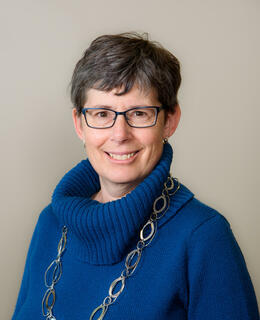

Dr. V. Elaine Joughin
Positions
Clinical Assistant Professor
Cumming School of Medicine, Department of Surgery
Child Health & Wellness Researcher
Alberta Children's Hospital Research Institute
Contact information
Phone number
Office: 403.955.7867
Background
Educational Background
B.S. Science, University of Saskatchewan, 1979
Doctor of Medicine Medicine, University of Saskatchewan, 1982
Research
Areas of Research
Main areas of research interest: brachial plexus injyury, hemophilic arthropathy, osteochondritis dessicans of the knee, congenital and acquired dislocations of the knee and patella
Brachial plexus injury - unfunded prospective study - 3 dimensional analysis of shoulder and arm movement during functional tasks preoperative and postoperative shoulder reconstruction surgery. Improved shoulder and arm kinetics have been demonstrated after tendon and arthroscopic shoulder releases to enable children with functional upper limb deficits to achieve measurable goals. Functional improvements that are important to these children include the ability to wash and comb hair, carry heavy objects, reach above the shoulder to place and remove objects on shelves, and cosmetically more acceptable movement of the affected limb. Our results have allowed us to evaluate the effectiveness of surgical procedures so that we can critically evaluate our management for each child.
Hemophilic arthropathy - multicenter study - Radioactive Yttrium and Rhenium injections into target joints (synoviorhesis) to decrease recurrent bleeding and subsequent synovial inflammation in hemophilia patients to decrease the progression of severe arthritis in target joints. In the past, P32 has been successfully used for this purpose. There are multiple published outcome studies showing its efficacy. However, P32 has been withdrawn from the market following rare incidences of leukemia in children that have had P32 injections in joint. This study has been initiated to determine the safety of using Y90 and Rh132 for radioactive synovectomy both in adults and children.
Participation in university strategic initiatives
Are you the profile owner?
Login to edit.
